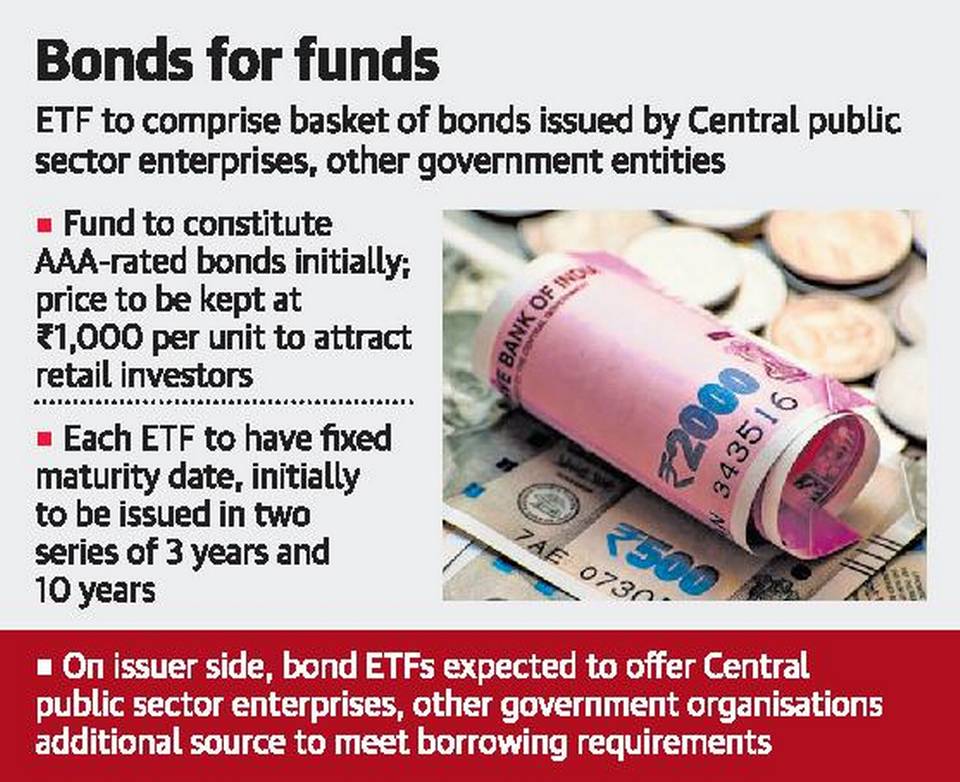Indian Economy
Bharat Bond Exchange Traded Fund
- 05 Dec 2019
- 3 min read
The Cabinet Committee on Economic Affairs, chaired by the Prime Minister of India, has approved the Government’s plan to create and launch India’s first corporate bond Exchange Traded Fund (ETF) — Bharat Bond ETF.
- The Fund will provide additional source of money for Central Public Sector Undertakings (CPSUs) Central Public Sector Enterprises (CPSEs), Central Public Financial Institutions (CPFIs) and other Government organizations to meet their borrowing requirements, apart from bank financing.
Exchange Traded Fund
- An Exchange-Traded Fund (ETF) is a basket of securities that trade on an exchange, just like a stock.
- ETF reflects the composition of an Index, like BSE Sensex. Its trading value is based on the Net Asset Value (NAV) of the underlying stocks (such as shares) that it represents.
- ETF share prices fluctuate all day as it is bought and sold. This is different from mutual funds that only trade once a day after the market closes.
- An ETF can own hundreds or thousands of stocks across various industries, or it could be isolated to one particular industry or sector.
- Bond ETFs are a type of ETFs which may include government bonds, corporate bonds, and state and local bonds—called municipal bonds.
- A bond is an instrument that represents a loan made by an investor to a borrower (typically corporate or governmental).
- Besides being cost efficient, ETFs offer a diversified investment portfolio to investors.
Features of Bharat Bond ETF
- The ETF will comprise a basket of bonds issued by the CPSEs, CPSUs, CPFIs, and other government organisations.
- The unit size of the bond has been kept at just ₹1,000 so that even retail investors can invest.
- Each ETF will have a fixed maturity date and initially they will be issued in two series, of 3 years and 10 years. Each series will have a separate index of the same maturity series.
- Index will be constructed by an independent index provider – National Stock Exchange.
Advantages
- The Bharat Bond ETF will ensure broader investor base through the participation of retail and High Networth Individuals (HNI).This will lead to an increase in the demand for bonds, thus reducing the cost of borrowing for borrowers i.e. government organizations.
- The Bond ETF will provide safety, liquidity and predictable tax efficient returns.
- The launch of this ETF is expected to eventually increase the size of bond ETFs in India leading to achieving key objectives at a larger scale - deepening bond markets, enhancing retail participation and reducing borrowing costs.




